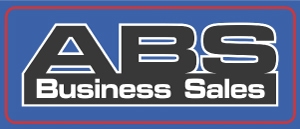How to Buy a Business – Tips and Tricks
How to buy a business is a pragmatic process. Buying or selling a business is not typically something anyone does very often.
Probably about as often as having a child rather than buying a car.
Because of this, it can be quite a fraught thing to do, but there are certain principles that help keep things on track.
The first is that there is a relationship between the value of the business and the size of the profit. Sure, there are factors that can make this relationship elastic, but let’s keep it black and white to help us talk about buying a business.
This means that if you want to sell your business, value it by using market comparison data and not by adding up a list of things that you want to buy or pay off with the sale proceeds. The two are unlikely to be of the same value.
A different slant to this principle is the financial planning one where you may decide to sell your business only when it reaches the value sufficient to meet your wish list. Just keep in mind that having a wish list is not the same as valuing the business.
If you want to know the first step in how to buy a business, have a look to find out what multiple of profit your choice of business is likely to be listed for sale at.
Incidentally, if you want a hand valuing your business. Let me know. I can help you.
Multiple of Profit
A buyer who has been looking for a business for a little while will build an intuitive feel for the relationship between price and value. The businesses that fall close to the ratio of price to profit that the market will support will get more and better-quality inquiries.
A buyer satisfied with the price to profit ratio is likely to inquire about the business.
Typically, this inquiry is via a business broker. A business broker is like a real estate agent but instead of selling houses, which are a passive asset, they sell businesses. They are not mortgage brokers.
It is worth mentioning that the exact business that is advertised for sale is rarely identifiable. To find the precise name of the business and other information, a buyer will normally be required to submit a confidentiality agreement with the business broker.
Without submitting a confidentiality agreement, a broker is very unlikely to provide information to a buyer or even take them seriously. The dangers of doing so are too great for a business broker.
A business broker that is satisfied that the buyer is genuine will release information pertaining to the business.
The core information is usually financial information that shows the profit of the business.
This is where the confusion can start. To make sense, most financials need to be adjusted. This is because they are for taxation. Most business owners like to mitigate their tax obligations. This means mitigating profit.
This approach to financial record keeping goes in the opposite direction to the approach required to get the best price for a business, which is to maximise reported profit.
Adjusted EBITDA is the profit measure used in a business valuation for larger businesses. For smaller businesses, it is the adjusted PEBITDA.
Essentially, the difference lies in the treatment of the owners’ remuneration.
The Financials
Confusion can occur when a buyer wants to see tax returns to confirm the financials. This is a minefield better left to accountants who are experts in this area.
Misunderstanding can occur when a buyer insists on getting the tax returns so they can talk to their financiers about the prospects of obtaining finance to buy the business. My experience tells me that without the help of accountants, the financiers have little hope of interpreting the tax returns so that they match up with the financials already provided.
The reason buyers do this is to save on the cost of commissioning an accountant to verify the financials. It ends in tears.
The job of a finance broker is to prepare the data to make the best possible case for the provider of credit to advance a loan. Where the error occurs is in the belief that the finance condition is one role. It is not.
A finance broker must package the data in a way that gives the finance provider the best reason to extend a loan. These are two functions and two roles.
The finance broker and the finance provider are at arm’s length in the assessment. The finance provider relies on information provided by the finance broker.
The finance broker will rely on the information provided by an accountant to make sense of the tax returns. The job of the finance broker is to debug the application for finance.
All this should be part of a contractual process. Due diligence is a process that occurs early in this sequence because it provides confidence to a buyer that the profit is as stated. When this is complete, the finance broker can use the verification of the accountant as part of the package of information that is ultimately provided to the finance provider.
Subject to Finance
Here is a little secret. The finance provider, also known as the credit center in a bank, is best viewed as an elaborate computer with very complicated algorithms fed the buyer’s information by geeks who don’t have a clue about risk assessment.
For a more in-depth example of how a credit center operates, look up the ‘ping machine’ in the Monty Python sketch.
That makes the finance broker’s role so important. The computer will spit out an answer in moments, but the broker must keep debugging information as the geeks in charge keep getting the computer to trip up over its algorithms.
An experienced broker has the best chance of jumping through all the hoops the computer at the credit center will provide. They are also risk averse and will never offer an opinion as to the chances of a successful outcome.
Nobody knows the outcome of the computer. Not even the programmers.
The process outlined above has expenses associated with it. For both the buyer and the seller. A prudent seller is likely to be ambivalent towards a request for tax returns that does not occur within a contractual process.
This means that if you want to buy a business and you require finance, the contractual process will be more critical than if no finance is required. Be prepared to ask for extensions to the finance condition.
An initial assessment of the financials and other information provided to a buyer will allow them to determine whether it is worth the cost and effort of proceeding down this tortured path.
There is still a lot a buyer can do to interrogate the validity of the business. BAS is a good start. At least this will provide sales data.
Incidentally, don’t be alarmed that interest rates have gone up. If you are a seller, the hurdle rates have moved in your favour. If you are a buyer, the rates are less important than when you buy a house because you will be asked to pay the loan down much faster on a business loan. The term has a bigger impact than the rate and if you want to get ahead, you still need leverage.
Once a buyer has decided they want to place an offer for the business, the business broker will help you along the path. They are cognizant of the costs that must be paid and some that must be borne and will help in their mitigation.










